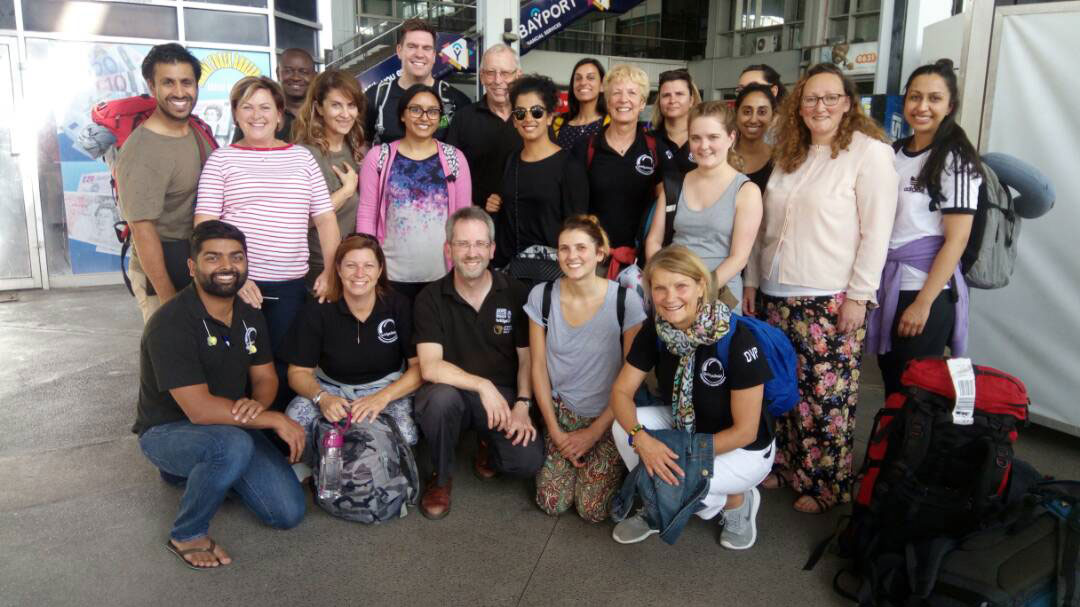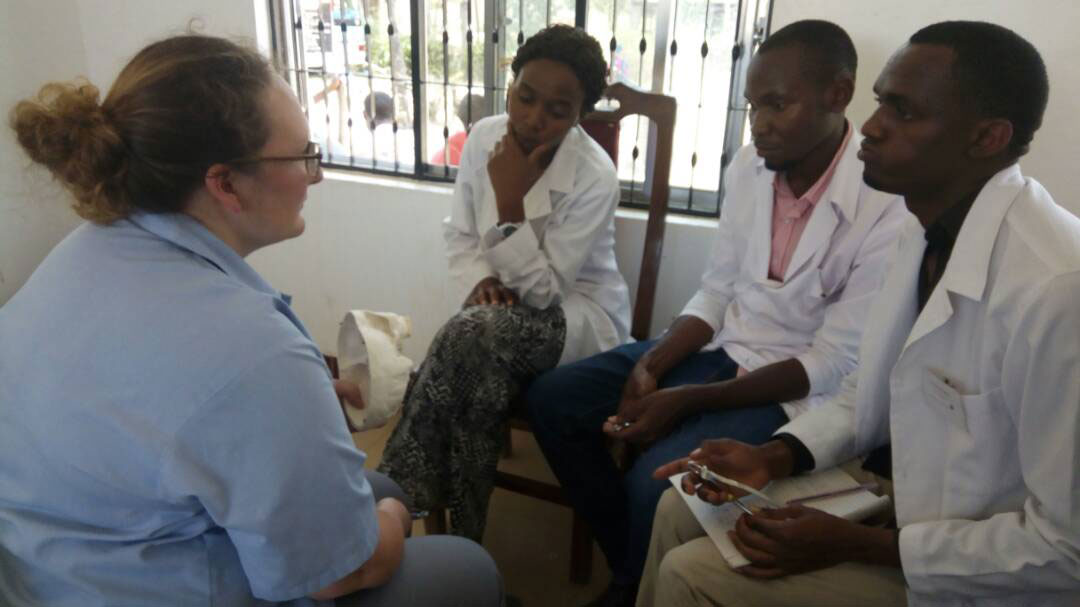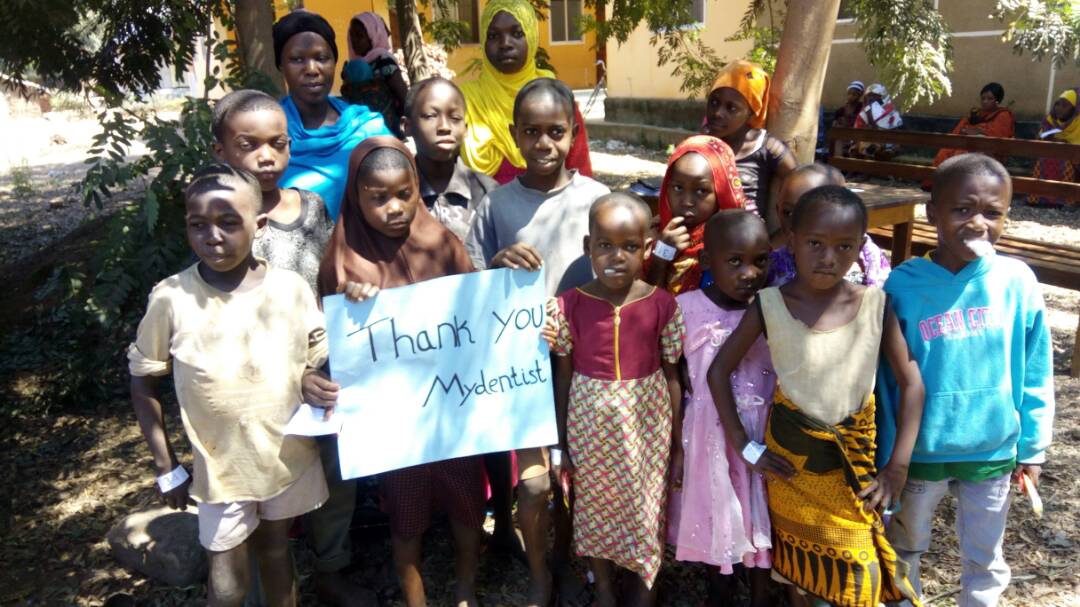Every year, dental charity Bridge2Aid arranges a number of volunteering expeditions for clinicians to utilise their profession in rural Tanzania. Training clinical officers in emergency dental training, the trips provide local health clinics with the skills to see thousands of patients living in agonising dental pain every year.
Now solidly landing her feet back into practice life after returning from Tanzania last month, we speak to dentist Martha Davies about her experience.
Wanting to make a difference
“I had been aware of Bridge2Aid for some time and had always been impressed with the sustainability of their programme. I work at the mydentist practice in Dukinfield and was reading an article in the internal clinical newsletter about another clinician who had been sponsored to go on the programme in 2016. I was very inspired, so when I saw they were inviting clinicians to apply to be sponsored to go in September 2017, it was a no brainer. It was something I really wanted to do and felt passionately about so I wrote a personal application and obviously my enthusiasm showed.
“Before the trip I attended a one-day training session with Bridge 2 Aid. Learning about how the clinics were run, what techniques we were there to teach, which instruments would be available and cultural differences was invaluable.”

A new learning curve
“As clinicians, our primary role in the team was teaching. Although there were plenty of patients to see and treat, our priority was to ensure that the training programme was being delivered to the clinical officers. The training programme has been developed so that there are clear learning requirements each day for the clinical officers. They start with learning how to take a clinical history, and then move on to examining the oral cavity, ensuring they do a full check of the soft and hard tissues; not just looking at the area the patient is concerned with. Showing them how to hold and use a dental mirror so they start to learn the dexterity required to use dental instruments.
“Once this was achieved, we then progressed to administering local anaesthetic, starting with infiltrations and then moving onto ID blocks once we felt they were ready. Towards the end of the first week they are able to use forceps. Teaching someone with no dental experience how to hold and manipulate forceps and then place them on a tooth can be a challenge. We forget that something that is routine for us is actually quite a skill to master at first. Once they were handling the forceps and safely using them, we gave them more difficult extractions to tackle and also introduce the use of couplands elevators.
“At the start of the training programme we were providing most of the treatment but as the programme progressed we did less of the work, by the last day we were mostly observing to ensure safe techniques were being used.
“My days were mainly spent providing one to one education with one of the clinical officers. After lunch, we also delivered seminars. At the end of each day we checked the clinical officers’ learning objectives and gave them feedback on how they had progressed, highlighting areas they needed to work on. We also had a role in assessing the clinical officers to ensure they were knowledgeable enough to work independently. The dental nurses in the team were responsible for delivering training in cross infection, sterilisation techniques and oral health education.
“It was a huge learning curve for me as I have never taught before. I found that I really enjoyed it.”

How did the patients differ to back home?
“The oral hygiene was actually better than I expected. One day we did a screening for a local school and it was really encouraging to see that a lot of the children obviously cleaned their teeth.
“Some of the population we were treating used the traditional mswak to clean their teeth which is a twig taken from the Salvadora Persica tree and it is known to have antibacterial properties as well as controlling plaque formation; from what we saw it certainly seemed to work.
“There was some periodontal disease and certainly lots of dental caries. The chewing of sugar cane is a problem as is the wide availability of fizzy soda drinks which are often the same price or cheaper than bottled water!”
Rewarding challenges
“For me, leaving my family for 2 weeks was difficult. I am a married mother of 2 boys who are 13 and 11 years old. We have a busy and hectic family life as many families’ do but the opportunity to go was too good to miss. My family are so proud of what I have done and it has helped give them a different perspective on the world. I have been into my youngest son’s class to give a presentation on the trip and all the kids were really enthralled with lots of questions. It felt very selfish at first to leave them, despite it being for a worthwhile cause, however doing something for me and achieving one of my life ambitions was really rewarding.
“Before going I was worried about performing dental extractions in a basic clinic with the patients sat on a standard 4 legged chair, with no back up of an air rotor to section roots etc. However, once I was there and working I didn’t even think about it, the procedures and techniques we use daily are easily transferable to the setting. If there were any particularly difficult extractions there was the district dental officer available on clinic to refer to, as if you have spent longer than 20 minutes on a difficult extraction the learning point is lost.
“The heat wasn’t too bad, we had plenty of water and more than enough food provided at lunch times. For me, the most difficult thing was seeing a young girl with complex medical issues who we could not help. I found that difficult at the time and still think of her now. I accept that we cannot help everyone, but coming face to face with someone, especially a child, who had dental pain that we could not help was hard.”

Why should anybody consider volunteering?
“I have taken home so many different things from my time with Bridge2Aid - a new outlook on life in many aspects. I worry far less about things now I am home; I have rediscovered myself as an individual in many ways. On the trip I was Martha, not mum of two, wife and local dentist. Not that I am unhappy in any of these roles, I love my family and enjoy our life but sometimes you lose your own identity being someone to other people. It was nice to just be me and in a way reconnect with who I am and what I believe in and value. I have a new self-belief and self-confidence.
“I think the work Bridge2Aid are doing is invaluable. In the rural communities we visited there was no access to safe emergency dental care as there were no local dentists and they could not afford the travel to a dentist, never mind the treatment costs once they got there. We saw many people who had suffered dental pain for many months if not years and it was affecting their daily life, with just a simple dental extraction they were relived of that pain and you can not underestimate how much impact that has on someone’s quality of life -it is not uncommon for people to die of dental related sepsis in these communities.
“Each clinical officer we train serves a community of 5,000 up to 25,000. Put in perspective, I was involved in training and passing five clinical officers, that is at least 25,000 people now with access to emergency dental care.
“I have a renewed belief in NHS dentistry. After seeing what it is like for people who have no national health service to access and can’t afford basic health care, I passionately stand by the NHS and what it provides for our nation. If there was no NHS dental services there would be large portion of our population who could not afford basic dental care and the consequences of that would be a huge inequality in our nation with a massive rich poor divide.
“Thinking of volunteering? Do it, sign up and get involved. It was one of the most positive things I have ever done. The atmosphere in clinic was fantastic and you won’t regret it. Bridge 2Aid needs its volunteers to keep doing great work. You can fundraise to go and they can provide help with this; I’m really honoured and grateful that mydentist funded my trip. It can be a real team builder at work and patients are really interested in what I have done - I think some of them look at me differently now!”